Greta Thunberg Reflects On Living Through Multiple Crises In A 'Post-Truth Society'
In an exclusive interview with National Geographic, the teen climate activist considers the successes of the youth climate movement and the challenges it will face.
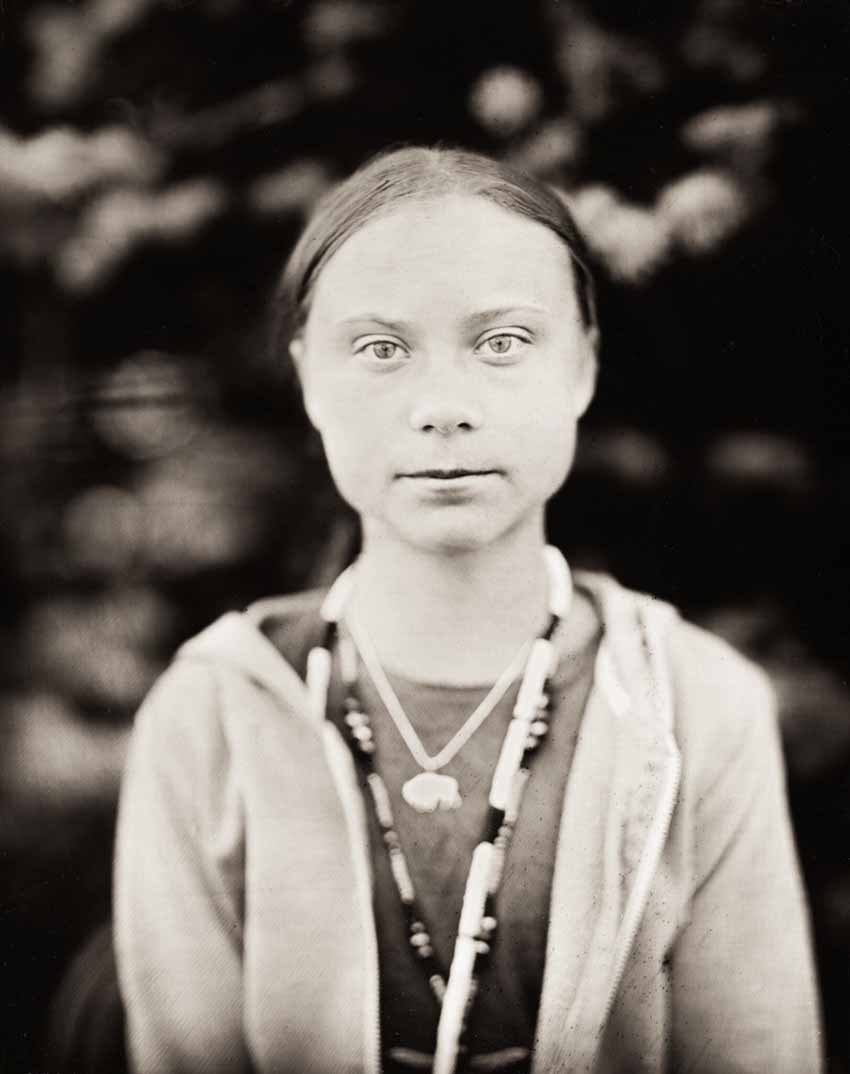
This portrait is titled “Greta.”PHOTOGRAPH: SHANE BALKOWITSCH, NOSTALGIC GLASS WET PLATE STUDIO
Since her first sit-in outside the Swedish parliament building more than two years ago, Greta Thunberg’s fundamental message has been clear and unchanging: The climate crisis is humanity’s greatest existential threat and we need to treat it as such. That message inspired millions of young activists to protest for change and led to a series of viral speeches that have defined Thunberg’s global fame. She was Time’s 2019 Person of the Year and was nominated for the Nobel Peace Prize two years in a row.
Now, though, in the midst of the COVID-19 pandemic—a global crisis of a much different nature—and the looming threat of the U.S. backing out of the Paris Agreement, the 17-year-old activist is back at school in Sweden. National Geographic spoke with Thunberg via Zoom about how her activism has changed over the past year, and how her message might survive an increasingly complex world. (This interview has been lightly edited for length and clarity).
Oliver Whang: A lot has happened in the past half year or so. How has your work changed since the coronavirus hit?
Greta Thunberg: Well, we have moved from lots of physical things, meetings and strikes and so on, to doing it digitally. But, I mean, since we are a movement of people who don't fly because of the environmental impact, we haven't had to change that much in the way we work. And then every country, every local group, differs. Because we are a very decentralised movement. We are not run top-down, but every local group decides on their own what they're going to do. So it's been different from city to city, from country to country.
Oliver Whang: Have any of those countries or cities adapted in a way that's been really successful?
Greta Thunberg: Yeah. Some do weekly digital strikes, which have been successful. And many have done symbolic actions. Some have put up signs or shoes outside the parliament buildings to symbolise that we should be here, but we are home. So there are lots of creative ways people have adapted.
Oliver Whang: Do you feel like the climate change crisis has been kind of forgotten in the middle of all this other stuff?
Greta Thunberg: Well, that's a very poignant narrative because, yes, of course, as have all other issues. In an emergency like this, you have to expect that other things are going to be put on hold, as they have been.
Oliver Whang: One thing that's been striking to me about the worldwide response to the coronavirus pandemic is that a lot of countries and companies have made really big moves. Stimulus bills were passed and companies are developing vaccines quickly. Do you see this kind of response as inspiring some kind of action towards addressing the climate crisis?
Greta Thunberg: Well, we shouldn't be comparing different crises, but it does show that we can treat a crisis like a crisis. And that it will probably change the way we perceive crises and crisis response. And it really proves that the climate crisis has never once been treated as a crisis. It's just being treated as a public and important question, like a political topic. Which it is not, because it's an existential crisis.
Oliver Whang: But has the response to the coronavirus given you more hope? As in, we can have a similar response to the climate crisis?
Greta Thunberg: It confirmed what I already knew. That once we treat the climate crisis like a crisis, we can change things and we can achieve things.
Oliver Whang: Here in the U.S., an election is coming up and our country is scheduled to withdraw from the Paris Agreement on November 4th. Our president has been promising to do this for years—he says that the accord is unfair to America. And there are a lot of people, not most of the people in the U.S., but a lot of them, who agree with the president and agree with that decision to withdraw from the accord. What would you say to those people?
Greta Thunberg: Nothing. Just as I always do, refer to the science. Because people have been trying to impact these people for so long, and they haven't succeeded. So why should I? Why should I be any different? If they don't listen to and understand and accept the science, then there's really nothing that I can do. There's something much deeper that needs to change them.
Oliver Whang: What might that deeper thing be?
Greta Thunberg: That we live in a post-truth society today, and that we don't care that we have lost empathy. We have stopped caring for each other in a way. We have stopped thinking long-term and sustainable. And that's something that goes much deeper than just climate crisis deniers.
Oliver Whang: So do you think in order to address the climate crisis, we might need a cultural shift or a paradigm shift rather than just passing carbon taxes and legislation, influencing leaders and developing technology?
Greta Thunberg: Well if I say that, then people will take that quote out of context and say that I want a revolution or something. But I mean the climate crisis is not the only problem here. It is just a symptom of a larger crisis. Like the loss of biodiversity, acidification of the oceans, and loss of fertile soil, and so on. And these things will not just be solved by stopping our emissions of greenhouse gases. The earth is a very complex system. If you take one thing and put it out of balance then that will have an impact on things beyond our comprehension. And that goes for equality as well. Humans are part of nature, and if we are not doing well, then nature is not doing well, because we are nature.
.jpg)
Oliver Whang: Does it bother you that you might be missing all these people who maybe accept that climate change is a thing and that it's a crisis, but prioritise joblessness or access to food or other domestic issues over the climate crisis? Do you feel like you're missing them?
Greta Thunberg: No, it doesn't bother me. We have not been made aware of the climate crisis—the climate crisis has never been treated as a crisis, so how can we expect people to care about it? Since we are not aware of even the basic facts, how can we expect people to want climate action? And so that is something that needs to change. We need to understand that we are not fighting for separate causes. We are fighting for one and the same cause even though it might not seem like it. It's the fight for climate justice, social justice. Whatever is the issue, it’s the fight for justice.
Oliver Whang: Do you think that we've made any significant progress towards addressing the climate crisis since you started protesting more than two years ago?
Greta Thunberg: It depends on how you see it. In one way, yes. It feels like the debate has shifted and more and more people are starting to slowly understand the climate crisis more and prioritising it. But on the other hand, it has still never once been treated as a crisis. And the emissions are still rising. So it depends on how you see it.
But I mean we can't expect that this one movement will change the world. If we think that is the case then we have not understood the climate crisis. People are like, ‘Has your movement failed since you have not accomplished your goals?’ But, I mean, what are our goals? We don't have any goals. Our goal is to do as much as we possibly can to be a small part of a very big shift. To be one of countless of activists who push in the same direction from different perspectives. And that is our goal. We can't expect one movement or one initiative, one solution, to change everything, or to put us in the right direction. Because the climate crisis is very complex. It's not just that simple.
Oliver Whang: Was there anything that you did or that other youth climate activists have done that you think has been particularly successful? Or any sort of manifestation of what you've done in policy or in the economy that you think is an example of your success?
Greta Thunberg: Yes, we have many. Especially local examples. But I think the biggest thing that we have accomplished is to put the focus on the science. We just say, ‘We don't want you to listen to us, we want you to listen to the science.’ This not a question about politics, this is not our opinion. We don't want the emissions to reduce, it's what the science says is needed if we are to stay in line with our commitments. We don't want things to be like this. But unfortunately, that's where we are. And we will continue to push for people to listen to the science.
Oliver Whang: Do you ever have any doubts about your work? Do you ever doubt yourself or what you've been doing?
Greta Thunberg: No, because I know it's the right thing to do. We are at a time now where we must step out of our comfort zones. I feel like I have a moral duty to do what I can, since I'm a citizen. And that makes me part of something and it is my duty, my moral duty, my moral responsibility, to do everything I can.
Oliver Whang: And that's never been in question for you?
Greta Thunberg: No. I mean, I don't want to be an activist. I don't think any climate activist does it because they want to. We do this just because no one else is doing anything, and because we need to do something. Someone needs to do something, and we are somebodies.
Oliver Whang: I'm curious if you feel like your moral duties or your responsibility has changed as you’ve become this more recognised name.
Greta Thunberg: Well, yes. Of course everyone has a responsibility, but the bigger your platform, the bigger your responsibility. And the bigger your power, the bigger your responsibility. The bigger your carbon footprint, the bigger your moral duty. So of course, as I've gotten a bigger platform that also comes with a bigger responsibility. I must use these channels, or whatever you would call them, to educate, to spread awareness.
And the things, all the resources I have, they will disappear one day. I mean, I won't be this person for a long time. Soon people will lose interest in me and I won't be so-called “famous” anymore. And then I will have to do something else. So I'm trying to, as long as I have this platform, use it.
Thousands of students marched across the streets of London during the March 15, 2019 climate strikes.
Oliver Whang: How do you see yourself proceeding from here? Do you want to go to university? Do you have any plans?
Greta Thunberg: Well, I don't really know. I just do what I want to do at the moment. And right now, I just started gymnasium (Editor’s note: “gymnasium” is the Swedish equivalent of high school). And there I will be for the following three years. And unless I want to do something else, I mean, we will see. The world changes from day to day. So you just have to adapt, I guess.
Oliver Whang: How do you plan on sustaining this movement? Are there specific things we need to do that are different from what needed to be done two years ago or one year ago or eight months ago?
Greta Thunberg: I mean, it's very complex. But right now we have kind of hit the wall. There are no arguments left. There are no excuses left. Now, it's just, either you try to minimize the crisis or just completely deny it, or you try to distract. We just need to start treating the crisis like a crisis and continue to lift up the science, but now everyone's blaming each other and we are stuck in a loop. We won't get anywhere unless someone breaks that chain, so to speak. Someone needs to do something. I mean, of course, many people have to do lots of things, but unless someone with a big platform or big responsibility does something to start treating the crisis like a crisis—for instance, the media—then we won't be able to move from here.
I am Greta, a documentary about Thunberg’s rise to prominence, begins streaming on Hulu on November 13. The Walt Disney Company is majority owner of National Geographic Partners and Hulu.
-
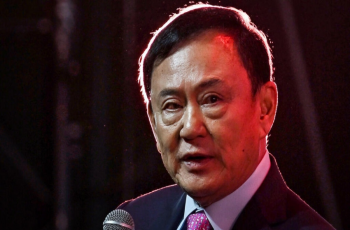
Thai ex-PM Thaksin appears on stand in royal defamation case
2025-07-16 -
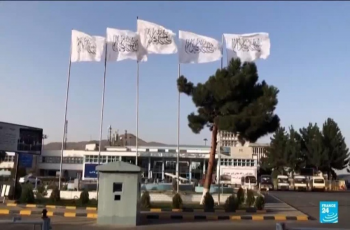
Thousands of Afghans and families brought to UK after data breach
2025-07-16 -
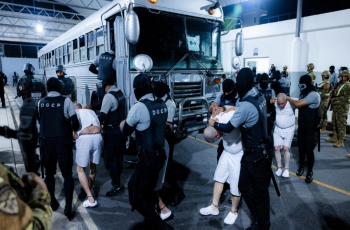
David vs Goliath: Inside the legal battle to help Trump's deportees in El Salvador
2025-07-16 -

Dutch tech giant ASML sees profits rise but warns on 2026
2025-07-16 -
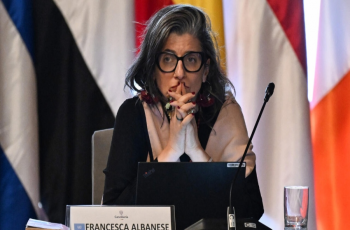
UN expert on Palestinians says US sanctions are a 'violation' of immunity
2025-07-16 -
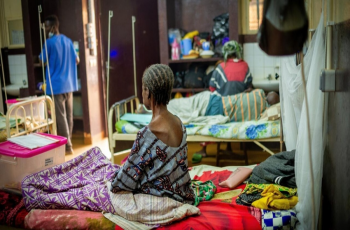
Global health aid sinks to 15-year low in 'era of austerity'
2025-07-16 -

‘I’m scared for my entire generation’: Young Americans reflect on Trump's first 100 days
2025-04-26 -
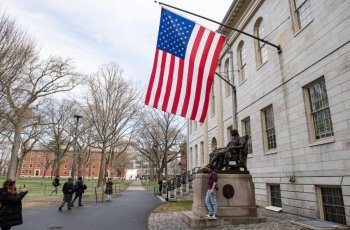
Foreign students give up American dream over Trump crackdown
2025-04-25 -
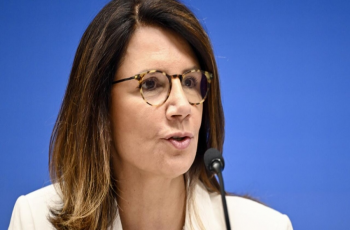
Don't make 'disappointing' retreat on climate, COP30 CEO urges EU
2025-04-25 -

Kashmir: India-Pakistan tensions rise after attacks on tourists
2025-04-25
